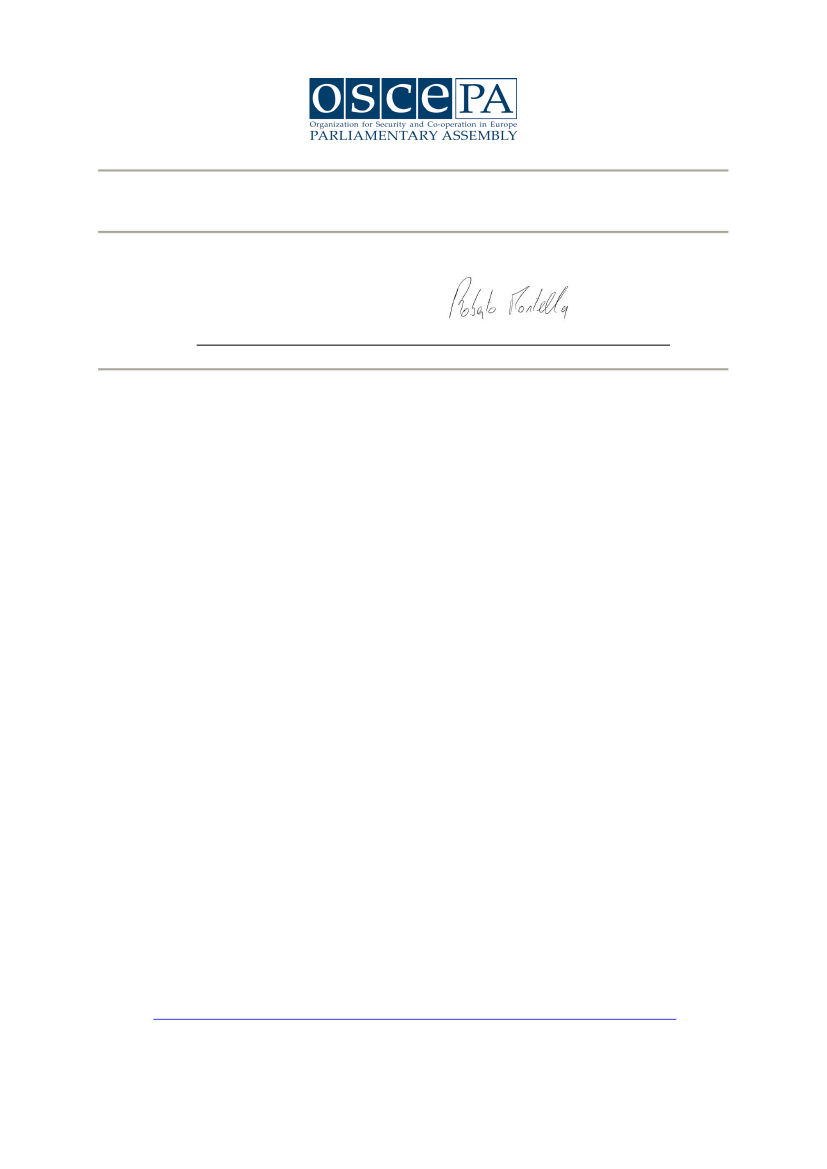
Interoffice Memorandum
Date
To
From
Object
06 March 2020
OSCE PA Staff
Roberto Montella, Secretary General
COVID-19
–
OSCE PA Temporary Preventive & Mitigation Measures
Since the COVID-19 outbreak in January 2020, I have been closely monitoring the situation
having in mind, on the one hand, the well-being of all OSCE PA staff and, on the other, the
need to ensure the continuity of our key mandated operations.
The overall situation with COVID-19 is currently very volatile. According to the World Health
Organization’s
(WHO) Situation Update of 5 March 2020, the risk assessment at global level
is “Very High”.
Many countries are introducing sharp measures to prevent and mitigate the
propagation of the new coronavirus among their citizens. This includes growing restrictions on
international travel that may directly impact on our ability to perform our mandated tasks. As
it is impossible to predict what will happen over the next weeks and months, the best way
forward is prevention and mitigation, together with some good contingency planning.
As of 28 February 2020, I have appointed Marco Bonabello and Dimitrije Todoric to represent
the OSCE PA in the OSCE taskforce in charge of developing a common preventive response
to the COVID-19 outbreak. Due to rapidly evolving developments, the taskforce meets on a
daily basis in the OSCE Secretariat in order to identify and recommend preventive responses,
closely liaising with national and international stakeholders on this matter. All OSCE structures
are encouraged to maintain close collaboration with the taskforce, address the preventive
responses recommended by the taskforce and seek close coordination with relevant national
and international stakeholders in their respective host countries. In case the situation further
deteriorates, the OSCE Crisis Management Team will be activated and the work of the taskforse
will be streamlined into the Crisis Management Team.
Consistently with the Inter-Office Memorandum issued by the OSCE Secretary General of 26
February 2020, following up on our internal correspondence dated 29 February 2020 and 02
March 2020, and building on the preliminary recommendations of the OSCE taskforce, I have
decided to introduce the following preventive and mitigation measures on a temporary basis
and with immediate effect:
•
OSCE PA staff shall keep abreast of the
latest COVID-19 developments
from trusted
official sources (e.g. WHO). Host countries (i.e. Denmark and Austria) responses to the
outbreak should be duly monitored, as well as recommendations of relevant
International Organizations.
OSCE PA Staff shall implement the
basic protective measures
recommended by WHO
in
(www.who.int/emergencies/diseases/novel-coronavirus-2019/advice-for-public)
order to minimize the risk of transmission of infectious disease in the workplace.
•